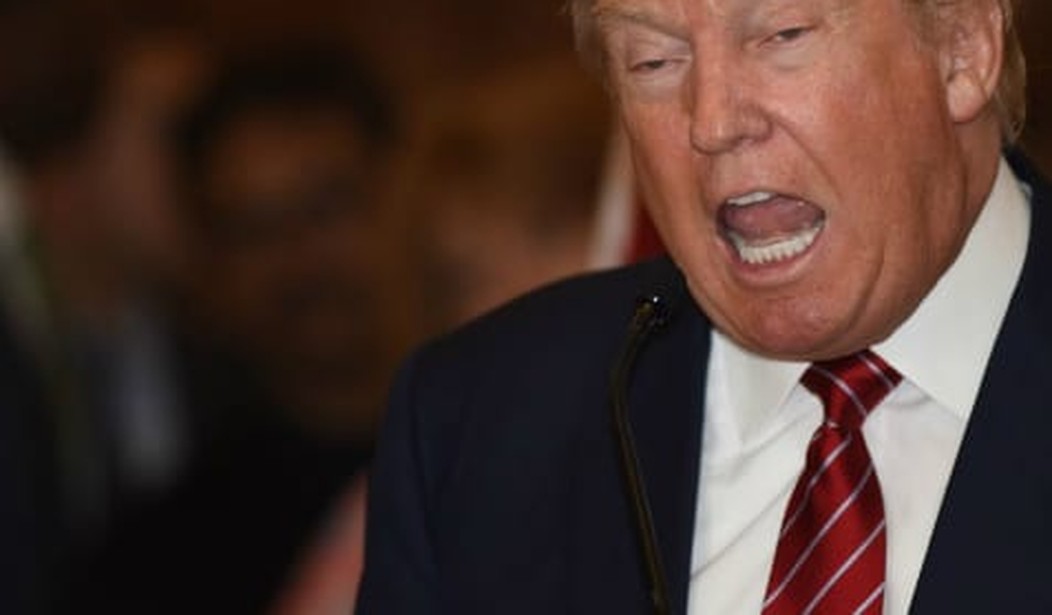The conventional wisdom these days is that GOP senators and congressmen who are in tight re-election contests are running away from Donald Trump. Some, indeed, have indicated they cannot support him.
But there is a larger group of vulnerable lawmakers who, for better or worse, are taking a more nuanced approach. Speaker Paul Ryan spoke for many when he told Jake Tapper that he wasn’t “there yet” when it comes to supporting Trump, but he didn’t rule it out either. Trump supporters jumped down the speaker’s throat, with The Donald’s campaign manager going so far as to say that Ryan “wasn’t fit” to be speaker.
Ryan’s hesitancy is good politics. The speaker made it clear that he expects Trump to grow up and drop the bombastic rhetoric and perhaps moderate his views on illegal alien roundups and Muslim immigration. Anything to make his candidacy less poisonous to Republican politicians. The speaker is leaving open the possibility that he and many GOP politicians currently sitting on the fence would eventually lend their support to Trump’s candidacy.
But, like Ryan, many of them have a long way to go.
There is actually no data yet to suggest just how big a problem (or not) Trump’s unpopularity will be for the Republican Party’s other candidates this fall. Uncertainty and the chances of a contested convention were high until just this week, as a surprised Ryan noted Thursday.
“It just wasn’t plausible before for a [poll] respondent to answer Trump’s effect on a race, because he plausibly wasn’t the nominee,” said GOP pollster Jon McHenry. “Now, we’re going to get a fair bit of polling either proving Trump’s point — ‘Look at all these different people I’m bringing in’ — or, more likely, look at the effect his 30 percent support among white women has on senators and others down the ballot.”
The Democratic Congressional Campaign Committee sees exactly the same thing, according to an operative familiar with the group’s recent polling. Polls conducted in battleground districts show two things, the Democrat said: “Donald Trump is wildly unpopular. And that has not yet trickled down to the House races in these districts.”
The DCCC has spent the two days since Trump’s Indiana win relentlessly linking GOP House members to “the Trump ticket,” laying the groundwork for a break later in the cycle. “House Republicans now face a nightmare scenario this November: sharing the ticket with Donald Trump,” DCCC spokeswoman Meredith Kelly said in a statement Wednesday. “… They will be inseparably tied to Trump in the eyes of voters on Election Day.”
If that effort is successful, House Republicans may have more reason to worry than their Senate colleagues who are facing difficult races, whose larger campaigns are often more capable of crafting individual brands and defining candidates separately from the national parties.
“The size of Senate campaigns typically allows a Senate candidate to present his or her own unique image to voters,” said Steven Law, the president of the GOP super PACs American Crossroads and Senate Leadership Fund. “I think House members are a little bit more caught up in the tide, a little harder to resist things that are going on at the top of the ticket.”
To head off the threat, the National Republican Congressional Committee and other Republican groups have redoubled attacks on Democratic House candidates in recent days, linking them to Clinton at every opportunity. They note that the Democratic front-runner has unusually high unfavorability numbers, and she’s still entangled in an increasingly bitter primary with Bernie Sanders.
How hard will it be for Dems to link Trump to specific House and Senate candidates? It may be easier than some Republicans think. It’s difficult to nationalize an election, but Trump is so unpopular, so polarizing that putting Trump and a vulnerable Republican congressman in the same frame in TV ads could make the connection an easy sell.
Republicans may have an even easier time connecting Hillary to Democrats. Clinton has so thoroughly penetrated the American psyche — and our negative feelings about her are a result — that the emotions of voters can be turned against Democratic challengers fairly easily.
It’s easier to demonize an incumbent than a challenger, so there will almost certainly be more Republicans that go down to defeat than Democratic challengers. It’s no wonder, then, that Republican politicians are being extremely cautious about supporting Trump. Their hope of The Donald moderating his tone may be futile, but until they absolutely have to, they appear content to wait and see about lending their support.










Join the conversation as a VIP Member